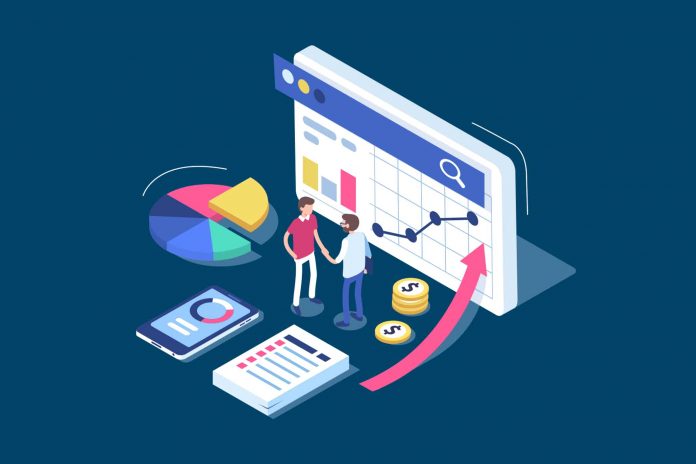Blogging is a great way to reflect, express yourself, gain knowledge, and even earn an income as a student. Thanks to evolving technology, many people are using the web to access info and have fun. It is estimated that over 400 million people view more than 20 billion pages every month. Sadly, one common challenge that you will come across as a blogger is the rising cyberattacks cases. Yes, it is vital to protect yourself and your blog if you are thinking of turning blogging into a business. We have compiled a few easy tips to help you get started.
Clear your cache and cookies
Every time you visit a website, your browser stores a subset of data so that future requests for that data are served up faster. In essence, caching reduces load time and enhances your browsing experience.
However, it would help if you kept in mind that this software component stores all data, including sensitive information. This means hackers can enter your system and access private data such as passwords, bank details, etc. These files can also be a target for adware, viruses, and malware. Therefore, you need to regularly clear your cache and cookies to protect your privacy and secure your blogging site(s)
Use an SSL certificate.
Have you ever realized that certain websites contain an application protocol (s) at the end of HTTP, while others do not? If you see a website marked HTTPS, it means the site has been encrypted with a code that offers a secure connection from a web server to a browser.
This means that all credit card transactions, logins, and data transfers are safe while on the site. Sounds cool, right? As a blogger purchasing an SSL certificate should be one of the top cybersecurity tips that you implement. Securing your website is the only way to ensure all the effort you put juggling schoolwork and content creation does not go to waste. So, enable SSL certificate on your blogging site is also suitable for your business. Here is why:
· SSL certificates are used as ranking signals by search engines. So, your site receives a boost in search ranking with HTTPS.
· Increases customer satisfaction- Most people tend to avoid unsecured sites. Securing your site shows your clients that you value their safety, and they can feel safe engaging with you on your platform
· Increases visibility and conversation rates
Install an Antivirus
Having an antivirus is another important cybersecurity measure. Sadly, most people downplay the vitality of having antivirus software by relying solemnly on the device inbuilt security tools. While that is okay, it is not enough. You must realize that blogging opens you to more security attacks. For instance, by having your contact info out to the public, you will receive thousands of unscrupulous junks and spam emails, which puts your device at risk. On the other hand, since you handle a lot of data, you might find yourself using different equipment on your machine, some carrying viruses. To protect your blogging masterpiece, in this case, your computer, you must invest in good antivirus software.
Takeaway:
A good antivirus software should look for threats, monitor all program behavior, and remove any malware as quickly as possible. Check out top antivirus software such as Norton, McAfee, or Kaspersky
Implement password security measures
No one likes to have to re-enter a password every time they visit a site. While it is easy and convenient to login in automatically, it is not safe. As a blogger, you should know that you might be under a cyber-attack every 39 seconds, according to cybersecurity stats. One reason you might fall the victim is that you are using weak usernames and passwords.
It would be a waste of effort if you lost all your content or got your blogging site hacked because of password negligence, right? It is safer to re-enter your username and password after each use. Remember to change them regularly as you can too.
Backup your data
There is a common saying that warns against putting all your eggs in one basket. This should be the case with your content. Have it back up on different platforms and devices. Since you are a student and don’t have so much money to spend on software, you can check out free cloud storage like MEGA, BackBlaze, Google Drive, Dropbox to guarantee you reliability and safety. Ensure you also have an excellent hard drive to back up your files physically.
Using unlimited residential proxies can be a helpful tool for students who need to scrape data or run automated processes without getting blocked or restricted by websites. Residential proxies use real IP addresses, making them harder to detect and more reliable than data center proxies. However, it’s important to use proxies responsibly and be aware of the ethical considerations.
Install a VPN
As a student blogger, you might not have the luxury of working from an office. You might find yourself taking advantage of the school WIFI to get more work done. Sadly, connecting to public WIFI puts you at risk of cyber-attacks. However, if you have to use public Wi-Fi, consider having a VPN. VPN is generally a network system outside of the internet and uses extra security and encryption measures to protect your data and identity as you surf the web. With a VPN installed, you will enjoy remote access, anonymity, and enhanced security, etc. The good part is that there are good VPNs, i.e., Nord, affordable for everyone.
Be careful with the adverts.
Once your blogging site gets good traffic, you will get requests to advertise other businesses. While making money is exciting, especially as a student blogger, you need to be careful when publishing banner ads on your blog. Malvertising is a severe security threat that can cost you your site. Do a proper check on ad networks; ask if the business that wants to be promoted has security measures protecting their servers. Remember, you do not want to make all that money then spend it solving cyber-attack issues. Conduct due diligence!
Keep up with the updates.
Did you know that old tech and software leaves you open to cybersecurity breaches? Sadly, dealing with cyber-attacks as a student blogger can send your blogging career to an early grave. You must update your software as soon as there is an update. Updates cover the vulnerability your platform might have; the new features are designed to make it more secure and less likely to get hacked. As a blogger, ensure you keep up with the plugin and theme updates for your blog.
Wrap up
Starting and running a successful blog is not as easy as it sounds. If you have already started, then you know that a lot of time, resources, and energy goes into attracting fans and traffic. Since you have invested all the time and now have a blog up and running, it is only fair that you do everything to protect it. As a student blogger, you might not have the finances to invest in advanced cybersecurity measures. Luckily, the best cybersecurity measures, as discussed above, are free. These tips should keep cyber attackers at bay.
Read Also : How to Start Guest Blogging When You Don’t Know Anything about It



































































